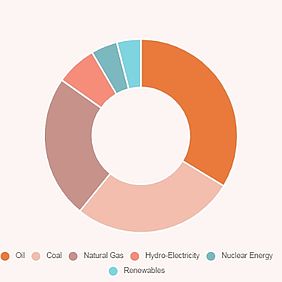Since 2010, The World Energy Council has been developing the so called Energy Scenarios, reports on the future of energy systems worldwide, providing a strategic framework aimed at helping energy leaders and policy makers to explore the quickly shifting landscape in the energy sector and make better-quality decisions. The World Energy Scenarios 2019: European Regional Perspectives report is developed in collaboration with Accenture Strategy Energy and the Paul Scherrer Institute and focuses on the European region, which includes EU, Eastern Europe and Russia.
The exploratory scenario-building methodology of the report is intended to help develop different perspectives on energy-related challenges of the European region. The report describes three plausible alternative pathways for regional energy systems:
1. Modern Jazz represents an innovative global market associated with increased digitalization and privatization; 2. Unfinished Symphony implies a low-carbon and more renewable energy future and 3. Hard Rock scenario assumes the world will face more national security priorities and unsustainable global economic growth. According to the researches, “the pathways describe what could happen, rather than what will happen” in the European region by 2040 in the context of the so called ‘Grand Transition’. All three scenarios outline the following main challenges facing the energy system of the region:
- Adequate investment. Although investment in European energy systems is predicted to keep rising, it is a challenge to attract the adequate investment needed for the successful global energy transformation and achieving the Paris Agreement on climate change.
- New opportunities, dynamic competition. In the context of global energy transition, new opportunities for global clean energy trade are emerging. This intensifies geostrategic competitions and will affect the existing energy market, including the future of gas in Europe, not least because of political tensions between the West and Russia.
- Digitalization. The growing digitization is having a positive impact on the energy market, delivering energy-plus services and new market entry strategies. At the same time increasing digitalization causes new difficulties related to reliability and cyber security as well as fragmented privatization of energy supply and storage infrastructure.
- Integrated energy strategies. More effective and innovative energy-industrial policy is needed in the European region in order to achieve deeper decarbonization, create new jobs and strengthen regional economic competitiveness. This is about shifting to a circular economy, leveraging new synergies and benefits changing social norms from ownership to sharing and taking more decisions at a local community level.
- Social involvement. Energy transition requires a more democratic and consumer-centric energy system with a strong engagement of local communities to involve individual consumers in discussions about energy transition costs and re-localization on new markets.
The researches point out that compared to other parts of the world, the European region has a reliable energy infrastructure comprising over 30 national energy systems. The energy market of the region is characterized by increasing diversity in the overall energy mix, which includes community and industrial heating, both centralized and decentralized electricity grids as well as renewable, hydro and nuclear power generation.
